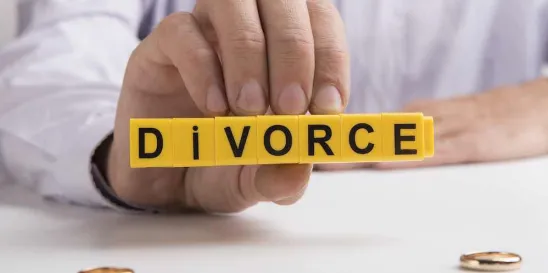Divorce is often associated with feelings of animosity, bitterness and lengthy, expensive courtroom battles. However, there is an alternative, less adversarial approach to ending a marriage – collaborative divorce. In collaborative divorces couples work together with their professionals to reach a settlement in a team approach. Unlike traditional divorce proceedings, collaborative divorce encourages a problem-solving mindset rather than an adversarial one.
The key features of a collaborative divorce include the following:
A Collaborative Team
Each spouse hires a collaborative attorney, who is specially trained in this approach, and assembles a team that may include financial experts, child specialists and/or therapists. This multidisciplinary team provides guidance and support throughout the process.
The Collaborative Agreement
At the start of the process, all team members sign a Collaborative Agreement in which both sides commit that neither will file anything in court until a final agreement is reached. If at any time the negotiations break down or either party abandons the process, all members of the team must withdraw from the case. This can be a harsh consequence, which often motivates people to stay committed to the collaborative process.
Transparent Communication and Disclosure of Assets
In collaborative divorce, all parties commit to open and honest communication along with efficient and full disclosure of financial information. This fosters an environment of trust, where concerns and interests can be expressed freely without fear of judgment or retaliation.
Interest-Based Negotiation
Instead of focusing on positional bargaining, where each party advocates for their demands, collaborative divorce focuses on identifying and addressing the underlying interests and needs of both spouses. This approach allows for creative solutions that may not be possible in a courtroom setting.
Out-of-Court Settlement
Through a series of negotiation sessions, the collaborative team helps the couple work towards a comprehensive and mutually satisfactory settlement agreement. This agreement covers all aspects of the divorce, such as property division, child custody and parenting time, child support, spousal support and other relevant issues.
Preservation of Relationships
Collaborative divorce prioritizes maintaining a respectful relationship between divorcing spouses, which is particularly crucial when co-parenting children. By fostering cooperation this process reduces the likelihood of long-lasting animosity and allows for healthier future interactions.
Privacy and Confidentiality
Unlike traditional divorce proceedings that take place in a public courtroom, collaborative divorce proceedings are private and confidential. This confidentiality provides a safe space for open communication and reduces the potential for public exposure of sensitive information. Though couples going through a traditional divorce may also get the benefits of privacy and confidentiality in a mediation, they will likely not have the transparency and interest-based negotiations utilized in a collaborative divorce. The mediation process in a traditional divorce may be less effective as well, if it is scheduled within the constraints of a court’s scheduling order before all financial disclosures are complete or conducted with shuttle-style diplomacy rather than a facilitative approach.
Emotional Support
Collaborative divorce recognizes that the emotional well-being of the parties involved is as important as the legal aspects of the process. All divorces involve some emotional trauma – whether or not there are diagnosable mental health issues. With the help of therapists or divorce coaches, individuals receive the emotional support needed to navigate the challenging emotions associated with divorce.
Cost-Effective
By avoiding lengthy and contentious court battles, collaborative divorce can often be a more cost-effective option. The process typically requires fewer hours of legal representation, resulting in lower attorney fees and overall expenses. In addition, couples learn problem-solving skills which often helps reduce post-judgment legal interactions.
Collaborative divorce offers a peaceful and constructive path to ending a marriage, allowing couples to move forward with their lives while minimizing conflict and stress. This approach can be beneficial to divorcing spouses, their children and extended families. However, not all cases may be suited for the collaborative process and may require court intervention.




 />i
/>i

